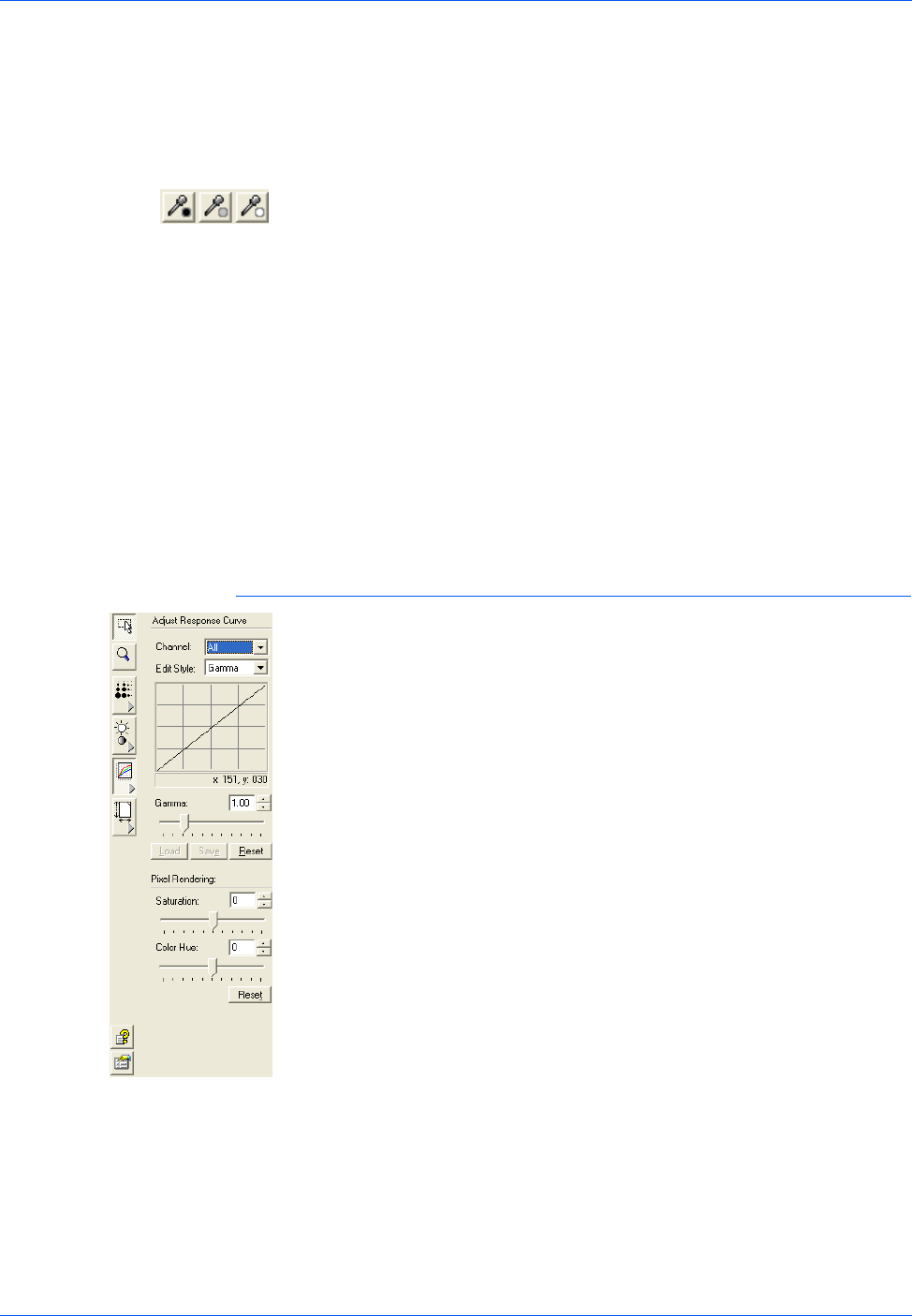
Three ways to scan
4800/2400 Series Installation and User Guide 2-21
You can also adjust the brightness and contrast by sampling
portions of the image in the preview window. The three Sampler
buttons correspond to the Black, Mid tones, and White portions of
an image.
To use the Sampler buttons:
1. Click one of the buttons.
The pointer automatically moves onto the image and becomes
a sampler pointer.
2. Place the pointer on the portion of the image for that sample
and click.
For example, if you selected the Black sampler button, place
the pointer on the blackest part of the image.
3. Repeat with each of the other Sampler buttons.
4. Click [Adjust].
The image changes to show your new settings.
5. If the image is not what you want, click [Reset] to return the
image to its original brightness and contrast.
Adjusting gamma, saturation, and color hue
If you’re using the Color Configuration to scan, you can adjust a
group of color settings. Gamma controls the brightness of the
midtones of the color, saturation is the strength or purity of a color,
and hue is the color your eyes see as reflected from the image.
These color settings are represented by a response curve.
The horizontal axis of the response curve represents the original
settings of the image, and the vertical axis represents new settings.
Thus, the curve is a straight line from the lower left to upper right for
an original, unchanged image. To see how the response curve
indicates changes, drag the Gamma slider to left and right.
The figure on the left shows the color options.
To adjust the color settings:
1. From the Channel drop-down menu, choose the individual
color (Red, Green, or Blue) that you want to use as the basis
for adjusting the image, or choose [All] to adjust them together.
2. From the Edit Style drop-down menu, choose the type of color
editing that you want to use:
• Gamma – The response curve changes as you change the
gamma setting; you can also change the saturation and hue
settings.
• Freestyle – You can drag points and sections of the
response curve to create interesting and unusual color
effects. Put the pointer on the curve and drag left, right, up
or down. The image changes its colors in response to the
